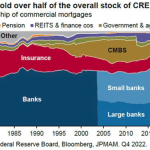Entrepreneurialism has become a defining force in the modern economy, reshaping how we approach work and career development. In today’s world, with the rise of side hustles and freelancing, more individuals are taking control of their own destinies through entrepreneurship. Erik Baker’s insightful book ‘Make Your Own Job’ delves into this transformative trend, highlighting how the quest for work-life balance has led many to embrace the entrepreneurial spirit. As traditional corporate structures evolve, opportunities to create and innovate are more accessible than ever, encouraging a culture where individuals can make their own jobs. With the growing emphasis on personal fulfillment and economic independence, entrepreneurialism continues to influence countless lives across the globe.
The evolving landscape of work is increasingly characterized by self-employment and innovative career paths, often referred to as entrepreneurship. This shift has led to the emergence of various terms like solopreneurship and sidepreneurship, reflecting new opportunities to craft individualized careers. In this context, the concept of ‘making your own job’ signifies a broader shift in how people seek meaningful engagement in their professional lives. Factors such as the gig economy and the pursuit of work that aligns with personal values contribute to this phenomenon. As individuals prioritize flexible work arrangements and creative ventures, the entrepreneurial mindset is becoming integral to professional identity.
The Rise of Entrepreneurialism in Modern Work Culture
In recent years, entrepreneurialism has surged in popularity, shaping modern work culture in profound ways. More than just starting a business, this movement encompasses a diverse range of individuals who identify as entrepreneurs—ranging from start-up founders to freelance workers and side hustlers. This shift in perception of work reflects a fundamental change in how people approach their careers. Instead of seeking job security in traditional roles, many are now prioritizing independence and personal satisfaction, pivoting towards roles that allow them to express their skills and creativity.
As explored in Erik Baker’s book “Make Your Own Job,” the origins of this entrepreneurial spirit can be traced back to economic disruptions in the past, where individuals found themselves compelled to create opportunities rather than relying on the conventional job market. Today, this ethos is echoed through the widespread adoption of freelance work, where professionals carve out their paths, balancing multiple gigs to achieve financial freedom and work-life harmony. Such shifts also demonstrate a collective rejection of the traditional 9 to 5 structure, ushering in an era that values flexibility and self-determination.
Frequently Asked Questions
What is the impact of entrepreneurialism on work-life balance?
Entrepreneurialism often blurs the lines between work and personal life. While it offers flexibility and the opportunity to ‘make your own job’, it can also lead to challenges in maintaining work-life balance. Entrepreneurs may find themselves working long hours, resulting in burnout unless they actively manage their time and set boundaries.
How does freelancing relate to the rise of entrepreneurialism?
Freelancing is a direct manifestation of entrepreneurialism, as it allows individuals to leverage their skills to create personal business opportunities. Instead of traditional employment, freelancers enjoy the autonomy to choose projects and clients, embodying the ‘make your own job’ philosophy that defines modern entrepreneurialism.
What is the relationship between side hustles and entrepreneurialism?
Side hustles are increasingly popular as part of the entrepreneurial spirit, allowing individuals to explore passions beyond their primary jobs. As people seek financial and professional growth, side hustles provide a way to generate additional income while cultivating skills necessary for full-time entrepreneurial endeavors.
How can one transition from traditional employment to entrepreneurial ventures?
Transitioning to entrepreneurship requires careful planning. Individuals should identify their skills, explore market needs, and consider starting a side hustle to gain experience. Networking with other entrepreneurs and leveraging freelancing opportunities can also help ease the shift from corporate employment to full entrepreneurship.
What are the psychological effects of the entrepreneurial culture on individuals?
The entrepreneurial culture can create feelings of anxiety as individuals constantly strive for success and fear failure. The demand for perpetual innovation and self-promotion often leads to stress, as seen with Baker’s friend. It’s crucial for aspiring entrepreneurs to find supportive communities and practice self-care to mitigate these psychological impacts.
Why is entrepreneurialism gaining popularity in the modern economy?
Entrepreneurialism is gaining traction due to changes in the economy that prioritize flexibility, creativity, and self-sufficiency. As traditional job security decreases, more individuals view entrepreneurship as a viable path to fulfillment and financial independence, particularly in the face of rising freelancing and gig economy roles.
What role does entrepreneurialism play in addressing economic challenges?
Entrepreneurialism is often viewed as a solution to economic challenges, such as job displacement and unemployment. By encouraging individuals to create their own opportunities—through freelancing, side hustles, or startups—entrepreneurialism fosters innovation, stimulates economic growth, and empowers communities to adapt to changing labor markets.
How do historical shifts influence current attitudes toward entrepreneurialism?
Historical shifts, particularly economic downturns, have influenced attitudes towards entrepreneurialism by prompting individuals to seek alternative job solutions. For instance, during the Great Depression, people turned to freelance work, showcasing how crisis can stimulate a culture of ‘making your own job’ and redefining work narratives.
| Key Points |
|---|
| There is a growing number of entrepreneurs, including various non-traditional roles like ride-share drivers and influencers. |
| Erik Baker’s book explores how entrepreneurialism has changed American work culture and individual self-perception. |
| The shift to entrepreneurialism began in the late 19th century as industrial jobs declined, leading to ‘structural unemployment.’ |
| The new work ethic emphasizes using personal skills and ambition rather than just hard work. |
| Entrepreneurial management emerged as a way to inspire rather than control employees, changing workplace dynamics. |
| During economic hardships, odd jobs and freelance work became popular as a means of self-employment and personal expression. |
| The concept evolved to include psychological aspects, with figures like Maslow valuing entrepreneurs as vital for social improvement. |
| By the 1970s and 1980s, the focus shifted from job scarcity to finding meaningful work, encouraging entrepreneurial thinking. |
| Today, the relentless push for entrepreneurialism can lead to job insecurity and constant anxiety about the future. |
Summary
Entrepreneurialism has fundamentally reshaped the landscape of work in America, demanding more from individuals than ever before. With the rise of various forms of entrepreneurship, from traditional business founders to gig economy workers, the emphasis on personal capability and constant ambition has intensified. Erik Baker’s exploration in “Make Your Own Job” reveals that while such a shift can promote self-sufficiency and innovation, it can also create a culture of anxiety, leaving many feeling overwhelmed and unable to relax. As the relationship between work and individual identity continues to evolve, understanding the implications of entrepreneurialism becomes crucial for navigating this modern economic environment.


